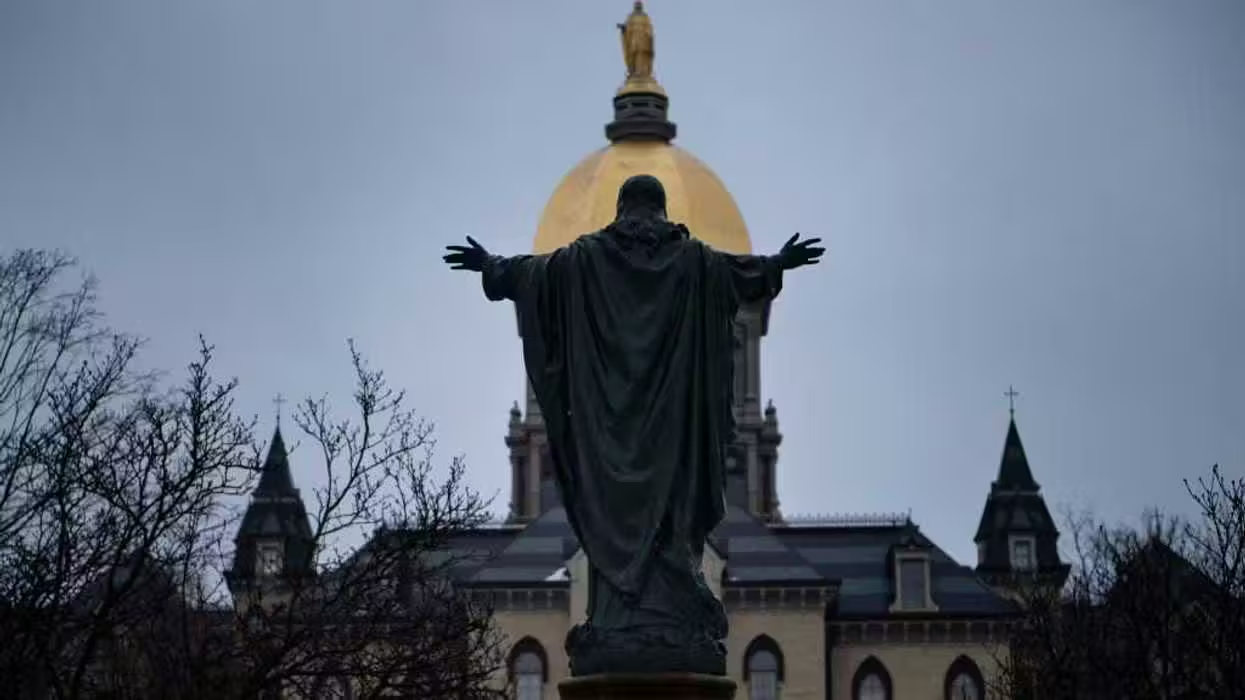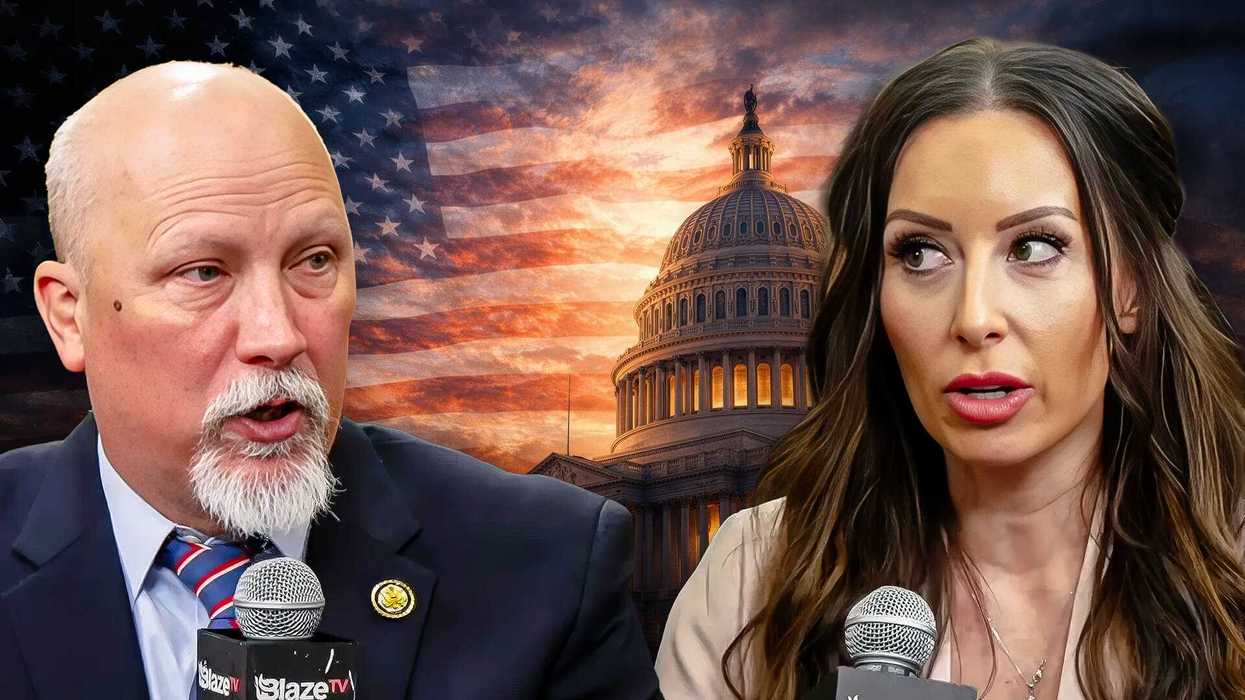
© 2026 Blaze Media LLC. All rights reserved.
Why a leading financial analyst believes we will see the 'final destruction' of the dollar
November 12, 2014
"The important thing about QE [quantitative easing] is this idea that the radical precedent is now on the books -- the virus as it were is in the monetary bloodstream."
Free-marketeers have been derided by Keynesians and other monetarists for predictions of impending doom due to the policies of the Federal Reserve. But if what one of the most erudite and outspoken leaders of the free-market chorus, Jim Grant, says is true, it might be he and his fellow capitalists who get the last (terrifying) laugh.
In an interview with Grant, eminent financial journalist and author of the new book "The Forgotten Depression: 1921: The Crash That Cured Itself," Grant explained why the prognostications of those concerned about the collapse of the dollar have to date proven wrong, but he still expects to see the "final destruction or near destruction" of currencies throughout the world.
 Jim Grant speaks with Steve Kroft during a 60 Minutes segment on the subprime mortgage collapse. (Image Source: CBS News)
Jim Grant speaks with Steve Kroft during a 60 Minutes segment on the subprime mortgage collapse. (Image Source: CBS News)
[sharequote align="center"]"This radical precedent is now on the books -- the virus as it were is in the monetary bloodstream"[/sharequote]
Grant attributes the lack of massive price inflation in spite of money printing in the U.S., and around the world to three primary factors: (i) "re-channeling of redundant dollars into financial assets and real estate," as opposed to other assets (ii) "worldwide competition for labor," which consequently keeps the prices of goods down and (iii) the fact that the dollars that the Federal Reserve has created "have...been cooped up in the financial system rather than circulating in the economy because the banking system has been impaired, and the regulators have seen to it that loans are not so freely forthcoming as they might have been otherwise."
Grant noted however that we should consider the question "in the absence of these really really radical monetary policies, mightn't prices have been dwindling?" He continued, "[I]f rate inflation now is say, one percent (1%), and if it otherwise would have been minus two percent (-2%) because of the worldwide integration of labor markets, because of the wonders of digital technology, then that increment of what might have been and what is could be seen as a kind of inflation."
Nevertheless, for Grant, quantitative easing in and of itself has sown the seeds of the destruction of the dollar and other currencies. Grant stated [during a portion of our discussion that you can find below beginning around 26:46]:
[If] the monetary authorities are intent on depreciating the currency, then I think that in the fullness of time they will succeed all too well....The important thing about QE [quantitative easing] is this idea, this radical precedent is now on the books -- the virus as it were is in the monetary bloodstream.
And next time there's a problem, what are they going to do? I mean what will they do? They have done more and more at every crisis juncture since the early 1990s.
...the Fed's main policy interest rate was pushed to three percent (3%) (that was the early '90s), then it was to one percent (1%) in the early oughts, now it's to zero percent (0%) -- in Europe it's less than zero -- [then] so-called quantitative easing which is the fancy name of the printing, the conjuring of dollar bills and euro and yen.
So all of this is...in the books as precedent, and the monetarists and Keynesians are rather preening about the evident success of these interventions, and we can be sure I think that they will not forebear to do more still next time.
There will come a time I think where there will be so much as to frighten even the complacent people on Wall Street, and there will finally be this inflation that has been so long in coming.
But I do believe the end of all this is the final destruction or near destruction of these currencies.
[instory-book ISBN="9781451686456"]
During the interview, we also discussed topics including:
- Why Americans should care about the recession of 1920-1921
- How Woodrow Wilson by chance did NOT intervene
- The inflation that brought on a deep economic collapse
- How the Fed ended up shifting from a narrow mandate under the gold standard to "full-blown central planning"
- How the legacy of the Great Depression, misinterpreted, continues to haunt everyone
- The folly of central banking today
- Why the fact that wages fell was the key to the rapid economic recovery following the recession of 1920-1921
- How the Federal Reserve manipulates the price mechanism, and its dangerous economic impact
- How America recovered from a recession within 18 months
- The impact of the recession on a young Harry Truman
- Why Grant believes America should financially reorganize
- Grant's views on Bitcoin
- And much much more
Note: The links to the book in this post will give you an option to elect to donate a percentage of the proceeds from the sale to a charity of your choice. Mercury One, the charity founded by TheBlaze’s Glenn Beck, is one of the options. Donations to Mercury One go towards efforts such as disaster relief, support for education, support for Israel and support for veterans and our military. You can read more about Amazon Smile and Mercury One here.
–
Follow Ben Weingarten (@bhweingarten) and TheBlazeBooks on Twitter and Facebook.
You can find all of our Blaze Books interviews on Soundcloud and Stitcher, and subscribe to our podcast automatically via iTunes.
Want to leave a tip?
We answer to you. Help keep our content free of advertisers and big tech censorship by leaving a tip today.
Want to join the conversation?
Already a subscriber?
Ben Weingarten is a writer, commentator, and editor at large at RealClearInvestigations. He is a senior contributor at the Federalist and writes columns for Newsweek and the Epoch Times.
Ben Weingarten
Ben Weingarten is a writer, commentator, and editor at large at RealClearInvestigations. He is a senior contributor at the Federalist and writes columns for Newsweek and the Epoch Times.
more stories
Sign up for the Blaze newsletter
By signing up, you agree to our Privacy Policy and Terms of Use, and agree to receive content that may sometimes include advertisements. You may opt out at any time.
Related Content
© 2026 Blaze Media LLC. All rights reserved.
Get the stories that matter most delivered directly to your inbox.
By signing up, you agree to our Privacy Policy and Terms of Use, and agree to receive content that may sometimes include advertisements. You may opt out at any time.






